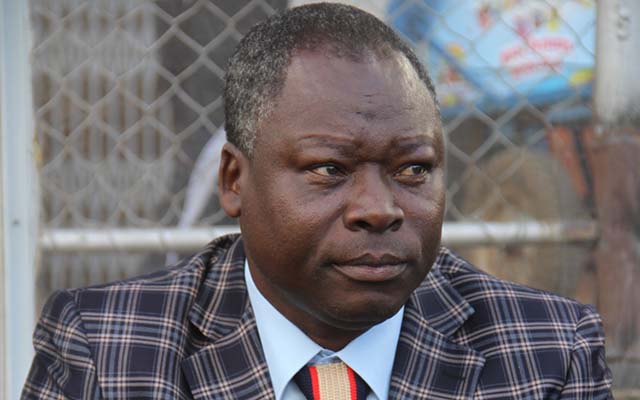A lot needs to be done to boost tourism: Mbwembwe

TM: Congratulations Cde Mbwembwe on your appointment as the new Minister of Environment, Tourism and Hospitality Industry. May you share with us your vision for this ministry?
EM: In terms of vision, I am looking at the overall vision of Zimbabwe being the destiny of choice in terms of global tourism. What I mean by that is that we are going to be the leaders in terms of tourism products, in terms of places that people have to visit in our country when we look at Victoria Falls, when we look at our national parks and our holiday resorts basically. We want to be the first place that people think of, the place that people want to visit before they think of any other place in the world.
TM: I take it to mean that you would want to see an increase in tourist arrivals. Your predecessor Engineer Walter Mzembi once complained about roadblocks as one of the issues affecting arrivals and free movement of tourists. What are your sentiments on the issue?
EM: That is certainly one area that I am going to continue and build on. I am happy the progress that my predecessor made in terms of ensuring that we improve the environment. When we talk about tourism, you are talking about a place where people would want to visit for leisure. We are talking about attractiveness, we are talking about fun, we are talking about interest and the issue of road blocks and spikes was certainly one of those things that would actually that attracted huge debate when it comes to tourism. Yes, it may have been there to address other issues of law and order and discipline on our roads but when we talk about tourism really it’s something that I would to pursue. I am going to be engaging more closely with the Ministry of Home Affairs and the police to ensure that at least there is a common understanding in terms of why we need to address these issues, why we need to minimise these roadblocks.
We are looking at our visitors and when they come to Zimbabwe they want to travel to Inyanga, they want to travel to Kariba, they want to go to Hwange, they want to go to Victoria falls and if we are going to have them stopped ten times twenty times that is obvious going to frustrate them and that is also going to take away the fun from the visit.
That is something that I am going to pursue and make sure that there is common understanding.
As a ministry yes, our interest is to make sure that the environment is conducive and the police, the Ministry of Home Affairs have also issues of concern that they need to address but we must find a common ground that will ensure that at least in terms of the total value to the country, we are on the same footing, we are on the same page.
TM: Do you already have a work plan in place and rough estimates of the increase you want to see in terms of tourist arrivals during your term of office?
EM: It’s too early for me to say. I am still trying to find my feet. I still need to find out the situation prevailing on the ground in terms of how much is in place. You see when you have statistical information and clearly understand the programme you will then be able to say okay, what is practical in terms of the growth rate of the industry, the growth rate in terms of the contribution to the GDP. So I am still to finalise my work plan which might obviously build into my vision which is to say we want Zimbabwe to be a destination of choice and that means a lot — so the action plan is to make sure that this vision is achieved.
TM: What are some of the measures that you are going to implement to ensure that Zimbabwe becomes the destination of choice for tourists?
EM: The measures are going to be part of the strategy and work plan. Like what I said before, the biggest thing is the quality of our products that we are putting out there for people to see. It is also going to be the level of awareness and concientisation of the source markets to say which one is our source market in terms of tourists and what are we going to do about it? If we look right now, we have done very well because the growth rate has risen and that is quite encouraging but we are also looking at other markets that are beneficial to us, South Africa for example constitute a much bigger contribution in terms of source tourist arrivals to Zimbabwe.
We have to see how best we can address these issues like Rand versus US dollar, how do we make it attractive, how do we make it worthwhile so that they are able to visit.
There is a lot that needs to be done in terms of the general awareness addressing the fears that are out there. There are countries that are still reluctant to visit Zimbabwe and that is why we have now focused more on the East but we want to focus on the East, West, South and the North.
TM: Zimbabwe’s reputation has been tainted largely through negative portrayal of the country by the Western and local “opposition” media. What do you think needs to be done to restore the confidence of tourists and other visitors to Zimbabwe?
EM: A lot of it has to do with re-engagement. We need to engage both enemies and friends. We need to ensure that our communication strategy is effective in terms of getting to those countries that are negative about Zimbabwe and those that are positive. We cannot advance our tourism on the back of publicity by the Western media for example. We need to be able to have our own communication and marketing strategy that must then address through diplomatic embassies and that must include high-level exchanges from other countries so that these people appreciate the first hand information about the correct situation on the ground. Most of the fears are unfounded and I am coming from Foreign Affairs where I am very much aware. We have people visiting our country and they actually get surprised. They tell you immediately when they jump out of the plane that what we have seen so far is not exactly what we hear when we are back home. I believe re-engagement is important.
TM: Your portfolio now also covers the environment component. May you briefly highlight some of the areas that you will preside over in this area?
EM: In terms of the environment portfolio that has been brought under my ministry, I will be looking at Environmental Management Agency for example through the relevant Act, I will be looking at Forestry Commission, I will be looking at Parks and Wildlife among others basically to deal with issues to do with environment and I think some of the topical issues there will be how we can make EMA more effective in terms of addressing issues of environment, cleanliness and pollution across the board – not just pollution in the towns or in the residential areas but we also talk about air and water pollution. How do we deal with issues of sustainable environmental management? What projects are we are doing and how do we do them in a sustainable manner — a manner that does not affect the environment, that does not continue to cause damage to the ozone layer — again extending to issues of climate change. We will be looking at our National Parks, how are we managing our wild life, how do we deal with issues of CITES, how do we make sure that our communities benefit from sustainable programmes to do with wild life management? We will also look at issues like Command fisheries, Command wild life with a view to develop and ensure that our communities benefit from that.
TM: Talking of CITES, what are you are planning to do to ensure that it lifts the ban on sale of ivory so that the country benefit from its huge stocks of ivory?
EM: It’s a position that I want to continue to pursue and push for. What is requires is what strategy are we going to use that will be more effective in getting support and also making sure that the CITES lifts the ban.
TM: How are you going to work with other ministries as it appears like your ministry largely interlinks with other ministries in Government?
EM: I would also want to emphasis that part of my plan is also to make sure that there are linkages within the different ministries to achieve a common purpose. That can only be achieved by working closely with colleagues not only in closely related ministries but across Government. You find out that these issues extend everywhere. If you talk about issues of poaching you should involve parks and extend to other ministries that you must work with to stem and stop it. When talking about environmental degradation I must be able to relate to mining effectively. I am happy that environment has been brought under tourism because when tourists come to Zimbabwe they are basically coming to enjoy a lot of issue to do with environment — our wild life, our dams, our plantations so if you allow for example land degradation to continue to take place it will affect the quality of the products that people are coming to see so it fits in very well with what we would to achieve.
TM: The country is facing some economic challenges. What impact will this have on the ministry?
EM: It’s a question of chick and the egg. If you want to see improvement in the fiscus you must be able to address issues that will ensure that there are increased revenue inflows. This is one of the issues that we have to deal with to say how do we incentivise, how do get grants and how do we get. All these issues are not necessarily an issue of money being pumped out of the fiscus. We have to look for other ways together with other stakeholders because we have great interest in this area. Yes I take note of the challenges in terms of the capacity of the fiscus but we just have to ensure that at least we find ways and means of achieving what we want to achieve in terms of that global market with the use of minimum resources.









Comments